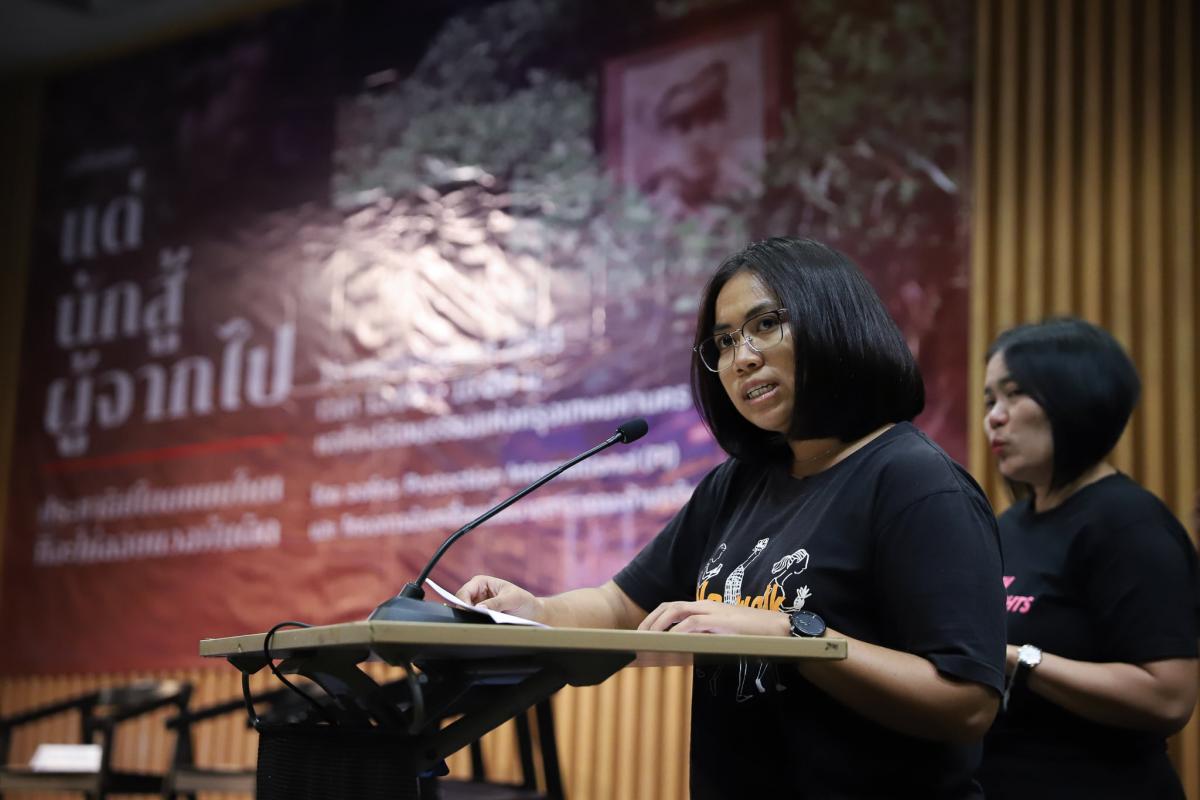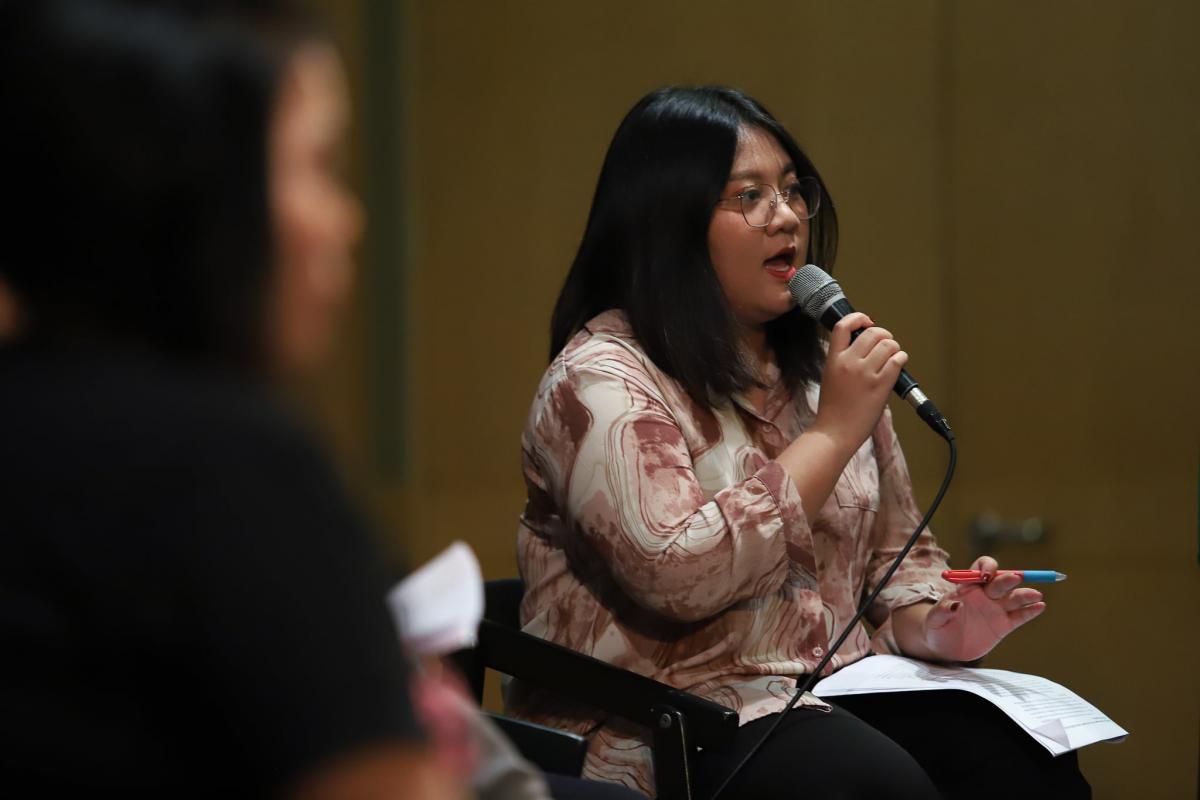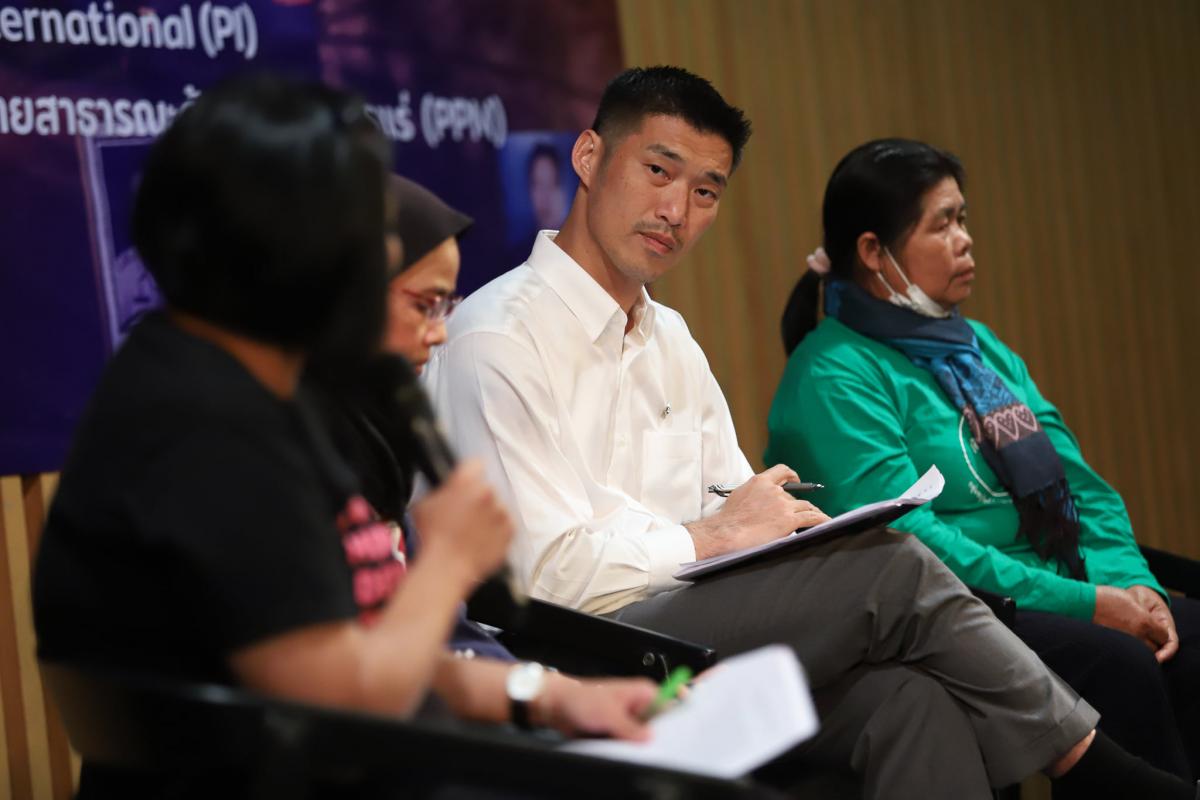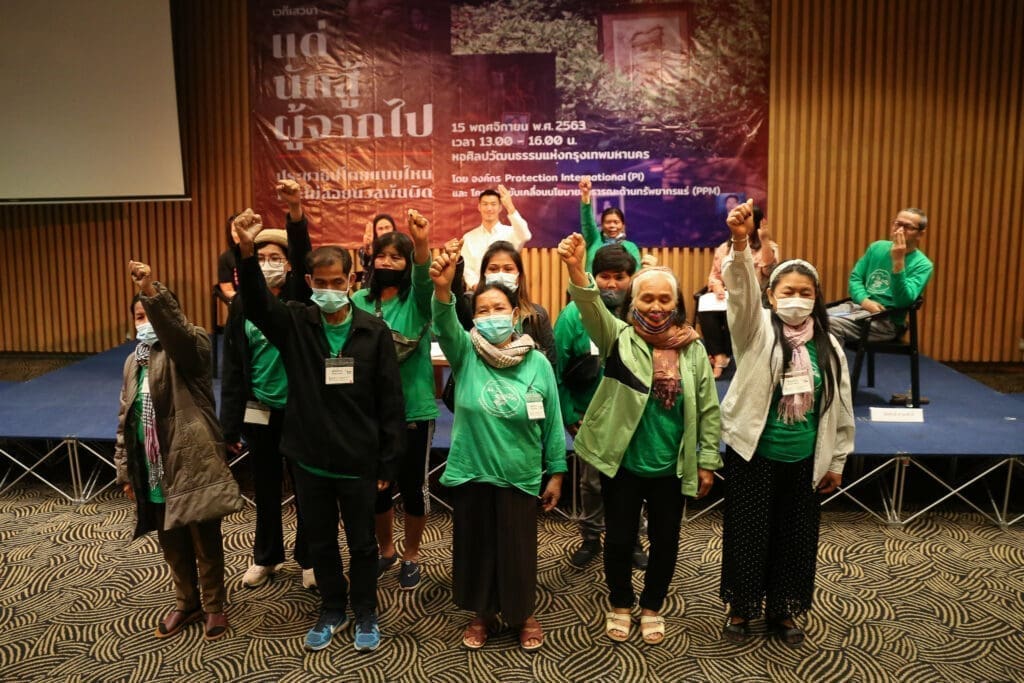Exhibition Organised to Honour Thai W/HRDs Who Were Either Forcibly Disappeared or Murdered as a Consequence of Their Fight for Environmental and Community Rights
[Bangkok] (November 15th, 2020) Protection International and the Campaign for Public Policy on Mineral Resources (PPM) organized the exhibitions “For Those Who Died Trying” and “Resilient People’s Movement” at the Bangkok Art & Culture Centre this month. The exhibition showcased photos of Thai community-based W/HRDs who, as a result of standing up for their environmental and community rights, have been either killed or forcibly disappeared. A panel discussion was also held on the topic “For those who died trying: what kind of democracy will end impunity?” featuring prominent speakers such as Angkhana Neelapaijit, a WHRD and former National Human Rights Commissioner for Thailand, and Thanathorn Juangroongruangkit, leader of the Progressive Movement, among many others.

According to Protection International’s documentation, in Thailand, over the past 50 years, 70 W/HRDs who have stood up to protect natural resources and combat corruption in their community have been subjected to enforced disappearance and killing. Chadaphon Chinbut, from Campaign for PPM, explained that the exhibition is a tribute to the hard-fought struggles of these W/HRDs and the injustices they have faced. Chinbut further added that the exhibition should serve as a reminder that the people’s movement will continue to fight amidst the suppression and harassment as well as work to inspire others to join their fight for change.
Below is a summary of the key messages from each of the prominent speakers:
Former Commissioner Angkhana Neelapaijit stated that enforced disappearances have been used by Thai authorities to purge dissidents for quite some time. On top of that, the justice system and investigation mechanisms are weak and lack transparency, which results in a culture of impunity, preventing public authorities who commit human rights violations from being held accountable.
Son Khamjaem, a WHRD, and wife of Kamnan Thongmuan Khamjaem, spoke to demand justice for her late husband. Mr. Khamjaem was a W/HRD from Dong Mafai who was gunned down as a result of his work. After the death of her husband, Ms. Khamjaem has been working to hold those accountable for their crime, despite facing constant threats. Yet, to this day the perpetrators still live in impunity.
Jutatip Sirikhan, from the Free Youth collective, noted that Thailand’s Constitution bestows too much power on the elites, which only facilitates the enforced disappearances of dissidents. She argued that the young people of Thailand do not want to continue to perpetuate or normalize a society that has unequal access to welfare, a broken democracy, and a culture of impunity to pass on to the next generation. “A major problem for society is the lack of democracy. If this were a democracy, we would have a platform for debate, a platform to explore solutions together and to develop policies collectively for the future of the nation”.

Prominent environmental rights defender and Commoners’ Party leader, Lertsak Khamkhongsak, said that the Thai bureaucracy does not adhere to the notion and ideal of democracy but rather to that of the ‘nation-religion-king’, thus allowing a culture of impunity to take root in Thai soil. For example, according to the new Minerals Act, all mining activities must be authorized only after a preliminary study has ascertained the area in question is suitable for such operations. However, public authorities continue to improperly use the Mineral Act to issue mining licenses on territories that should be preserved. Places such as national parks, archaeological sites, and important cultural or religious sites are protected areas and should be excluded from mining operations, yet they are not properly being protected from mining companies.

And finally, Thanathorn Juangroongruangkit, leader of the Progressive Movement, spoke about how the stories of the W/HRDs he was exposed to growing up had inspired him to fight for change in Thailand. Juangroongruangkit noted that many of the rights Thai people enjoy today have been made possible thanks to these defenders. For example, he mentioned the case of Ms. Pranee and Ms. Montha, two members of the Southern Peasants’ Federation of Thailand (SPFT), which is a landless peasants’ network formed in 2008 that campaigns for the right to agricultural land in the Khlong Sai Pattana community. These two WHRDs were shot and killed in 2012 and their bodies were mutilated to intimidate their community. The perpetrators have still not been brought to justice, which according to Juangroongruangkit, illustrates how meaningless these types of people are to the Thai elite. He further stated that W/HRDs should not be left alone to fight for themselves, as those in power should act: “We should not let these enforced disappearances happen. We should not allow harassment to become a new normal”.
Protection International calls on the diplomatic community and civil society of Thailand to enhance protection mechanisms for W/HRDs, condemn all forms of violence, and put an end to the culture of impunity. In honor of all those that we have lost along the way, we will continue to fight for the right to defend human rights.
Lastly, we would like to say a big thank you to the around 15,000 visitors who came to see the exhibition and over 100,000 people who shared it on their social media.


